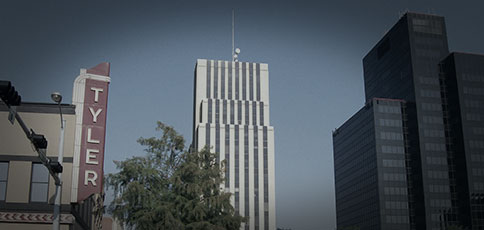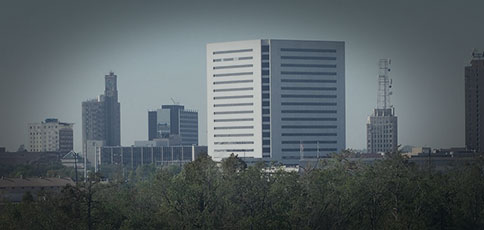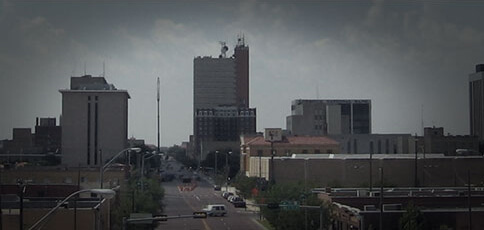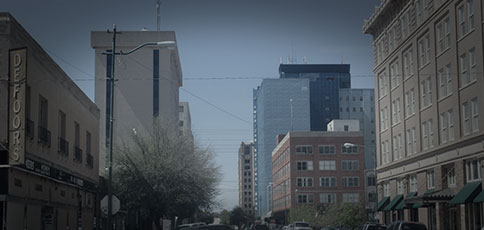
While hernia repair procedures are fairly routine and medical professionals use surgical mesh effectively in most cases, there are some instances in which complications can lead to death.
In fatal cases, the cause could be:
- Bowel or intestinal obstruction
- Organ perforation
- Internal bleeding
- Infection
A combination of these factors may cause some hernia mesh deaths. However, if the procedure or the mesh itself caused the wrongful death, a loved one of the patient may be eligible for compensation through legal action.
What Surgical Mesh Should Do
Weakness in muscles or connective tissue around an organ or other body part causes a hernia. Those muscles or connective tissue are supposed to keep everything in place. When they fail, an organ, fatty tissue, or other body part in the area can move or protrude, causing pain and limiting movement.
When surgery repairs a hernia, mesh strengthens and supports that area while it heals. Mesh can be synthetic or made from animal tissue and can be absorbed by the body over time or remain permanent, according to the U.S. Food and Drug Administration (FDA).

800-285-HURT (4878)Available 24/7 | 356 Days | se habla español
Patients Have Several Options for Surgical Hernia Repairs
As American Society of Anesthesiologists explains, there are various types of hernias, including inguinal hernia, femoral hernias, hiatal hernias, and ventral hernias. This means the treatment for a hernia will depend on its type and other factors. People who require surgical repairs for hernias have two main options: a laparoscopic repair or an open hernia repair.
During laparoscopic surgery, a surgeon makes tiny incisions to the patient’s abdomen before a medical professional inserts a laparoscope connected to a small camera through an incision to make the repair. They can also use mesh to close the abdominal wall and make it stronger. This approach is considered to be minimally invasive and less painful after surgery. Per the Cleveland Clinic, it can also help patients recover in days instead of weeks.
If a patient has open hernia surgery, a surgeon can cut into the patient’s groin area to see and repair the hernia. They can either use stitches only or stitches and mesh to close the abdominal wall. If they use mesh, the aim is to strengthen the area in the abdomen that is weakened after a hernia operation.
Both surgical repairs can come with a risk of complications, so patients should consider their medical history and discuss the surgical approach that is right for them with a doctor.
Hernia Repair Complications Can Be Deadly
Some hernia patients who have surgery could experience chronic pain, recurrent hernias after surgery. Hernia surgery can present potential complications, and several could be fatal. Among them are:
Bowel Obstruction
Sometimes, hernia mesh complications lead to a blockage in the intestines, called an obstruction. This can be caused by:
- Mesh migration: Movement from where the mesh was originally implanted, obstructing the bowels
- Surgical errors: Improper implantation of the mesh leading to a blockage
- Adhesions: Scar-like tissue that causes the intestine to attach to itself or other tissue
Some obstructions become so severe that blood flow is cut off from the intestines. According to Mayo Clinic, the consequence of this could be tissue death (when the wall of the intestine dies due to lack of blood supply). This tissue death can then cause further, life-threatening complications, including perforation and infection.
Peritonitis
One specific infection brought on by intestinal blockage is peritonitis. This occurs when the abdominal membrane, the peritoneum, becomes inflamed. This infection can quickly become life-threatening without treatment and requires prompt medical attention. Symptoms include abdominal pain and bloating, fever, nausea, and digestive problems.
Organ Perforation
When hernia mesh is improperly implanted or migrates, it can cause a perforation, a tear, or hole in an organ or tissue. The affected area will depend on where the hernia was located but could include:
- Intestines
- Abdominal wall
- Colon
- Bladder
- Blood vessels
Perforation can lead to peritonitis, as mentioned above, as well as other infections and internal bleeding. After all, it is caused when the hernia mesh is not where it is supposed to be.
Bowel Perforation and Sepsis
A perforated bowel—holes in the small or large intestine or colon—can be especially dangerous, as they can spill waste into other areas of the body. The greatest consequence is death due to sepsis. Sepsis is caused by an existing infection that then leads to a “chain reaction,” according to the Centers for Disease Control and Prevention (CDC). Left untreated, sepsis can damage tissue, cause organ failure, and claim a life.
Infections
Peritonitis is not the only infection that may accompany a hernia repair surgery. In fact, a study from The Journal of Laparoendoscopic & Advanced Surgical Techniques, Part A pointed to infection as “one of the most challenging complications of this operation.” The hernia mesh itself can become infected during these procedures, requiring another surgery to remove the infected mesh and reconstruct a patient’s abdominal wall, “with variable success rates.”
Staph Infections
Hospitals and healthcare facilities are particularly prone to staph infections, with CDC reporting almost 20,000 deaths in 2017 caused by them. Specific risk factors include:
- Undergoing surgery
- Staying in a healthcare facility
- Implanting a medical device in the body
You undoubtedly recognize that all of those are part of complications after hernia surgery. If a staph infection is not treated in time or is resistant to treatment, sepsis and death can result.

800-285-HURT (4878)Available 24/7 | 356 Days | se habla español
Medical Negligence Can Cause Hernia Mesh Complications
Infections, perforations, or obstructions not detected in time or cause additional complications—such as tissue death or widespread sepsis—can, unfortunately, cost a hernia mesh patient their life. If you lost a loved one from infected mesh or a connected complication, you could file a wrongful death lawsuit, especially if the death was caused by:
- Negligent health care workers
- Failure to detect the problem
- Mesh defects
- Unsterile equipment or conditions
Contact a legal professional if you suspect any of these factors caused your loss.
Your Loss Matters to Us – Call Us Today About Hernia Surgery Complications
At Loncar Lyon Jenkins, we understand the shock and disbelief that accompanies the loss of a loved one following what should have been a routine procedure. A family member could have died from hernia mesh complications, but the true cause may have been product defects, surgical errors, or other negligence.
If that’s the case, you can pursue damages through a civil suit. Call in the Strong Arm today, and we can work by your side.














